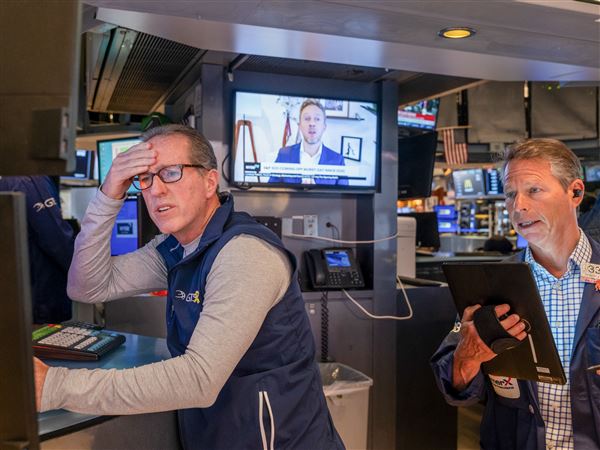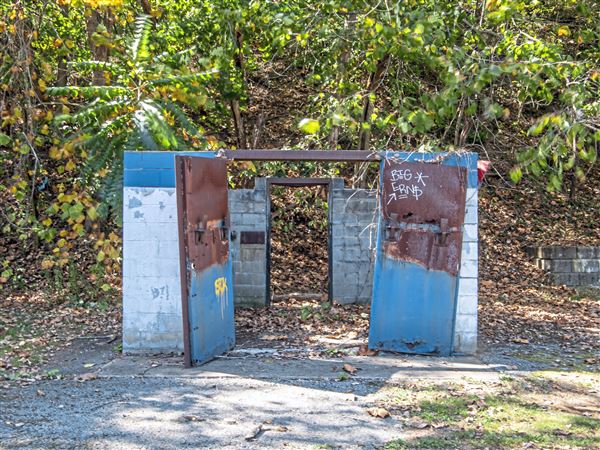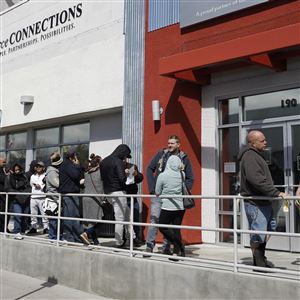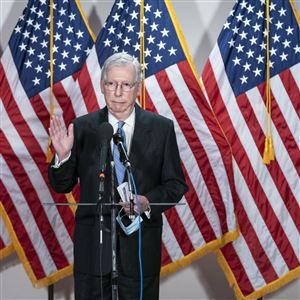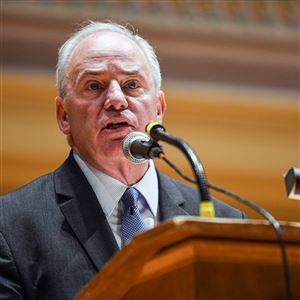WASHINGTON — By late April, Les Neilly had called back four employees at his Strip District business that makes tarps and awnings, seeing orders rebound at his business that had been deemed essential by the state and allowed to operate during the COVID-19 pandemic.
But as Mr. Neilly handed out pay stubs one Friday, he faced unhappy workers who explained their frustration: Those who were still unemployed, the workers informed him, were earning more on government checks than they were on the job.
The discrepancy, it turned out, was an unintended consequence of Congress providing an extra $600 weekly cash benefit to those who lost their job amid mandatory stay-at-home orders.
“To give people more money than they actually make in a week is crazy,” said Mr. Neilly, president and owner of Neilly Canvas Goods Company, a fourth-generation family business.
Mr. Neilly plans to make that argument before the Senate Finance Committee on Tuesday at a hearing focused on how Congress should handle unemployment compensation benefits as businesses in many states begin to gradually reopen.
Lawmakers approved a temporary but dramatic expansion of unemployment benefits in March, as the pandemic was roiling the economy and state governors were requiring non-essential businesses to shutter to stem the spread of the virus. One Federal Reserve estimate at that time projected unemployment could soar to 32%, eclipsing the Great Depression’s peak unemployment of 25%.
Congress — in addition to opening up unemployment benefits to independent contractors and those without sufficient work history — created the Federal Pandemic Unemployment Compensation program: Essentially, an extra $600 a week.
The extra benefit nearly derailed speedy talks to approve the $2.3 trillion economic rescue package when some Republican senators objected, calling it a “drafting error” that must be corrected. They eventually allowed the bill to pass.
Tuesday’s Senate hearing could offer clues into how much more federal aid lawmakers can agree as Congress considers a fourth major round of COVID-19 legislation.
Many Democrats have generally supported extending the unemployment benefits beyond the current expiration date of July 31.
The $3.3 trillion package drawn up by the Democrat-controlled House last month extends the additional $600 in unemployment compensation through Jan. 31.
In a statement in favor of the bill, Rep. Mike Doyle, D-Forest Hills, said the unemployment measure “does right by working families, putting additional direct payments in their pockets.”
Republicans have been hesitant to endorse a fourth package.
Rep. Guy Reschenthaler, R-Peters, has urged a “wait and see” approach before committing to another bill. Sen. Pat Toomey, R-Pa., has said more of the federal money from the March package should be spent before lawmakers can decide whether more is needed — and that reopened businesses should drive the economy, not federal spending.
The two lawmakers held a press conference last Friday at a recently reopened bakery in Washington, Pa.
Others see room to maintain aid while eliminating the $600 benefit.
Rep. Conor Lamb, D-Mt. Lebanon, said last week that some business owners in his district were worried about convincing employees to come back to work because some people could earn more on unemployment. Mr. Lamb was among 14 Democrats who voted against the House measure last month, which passed by a 208-199 vote.
“That’s an issue we have to confront,” Mr. Lamb said during a telephone town hall. He said he would favor sending another round of direct payments — like the $1,200 checks approved in March — instead of extending the extra $600 in unemployment.
The direct payments would “probably [be] a similar amount of money, but it removes any incentive not to go back to work, but still supports the people who need it,” Mr. Lamb said.
The hearing also comes on the heels of last Friday’s release of monthly unemployment data that contained surprisingly hopeful trend: In May, employers added 2.5 million rise in jobs the unemployment rate fell to 13.3 from 14.7 percent in April. Economists had expected the unemployment rate to rise to nearly 20% in May.
President Donald Trump and his supporters seized on the news.
Mr. Trump, in remarks outside the White House, pledging the U.S. would “go back to having the greatest economy anywhere in the world, nothing close, and I think we’re going to have a very good upcoming few months.”
Stephen Moore, a Trump economic adviser, told NBC News “we certainly don’t need any new spending.” He added that he believes “we are in the recovery stage, and we're no longer in the contraction stage.”
A spokesman for Finance Committee Chair Sen. Chuck Grassley, R-Iowa, said the jobs report “underscores why Congress should take a thoughtful approach and not rush to pass expensive legislation paid for with more debt before gaining a better understanding of the economic condition of the country.”
Mr. Neilly, the Pittsburgh business owner, was invited to testify before Congress through the National Federation of Independent Businesses, which represents about 15,000 small businesses in Pennsylvania. He is slated to sit on a panel with a think tank policy analyst, a Florida state senator and two workforce development officials, following testimony from the Labor Secretary Eugene Scalia.
Mr. Scalia, in a statement last Friday, said “the re-opening of the economy in May was earlier, and more robust, than projected” but said the department acknowledged “millions of Americans are still out of work, and the department remains focused on bringing Americans safely back to work and helping States deliver unemployment benefits to those who need them.”
Mr. Neilly, in an interview Monday, said two employees complained to him on April 24 as he handed out pay stubs.
He summarized one worker’s argument: “Why are we working and the other people are sitting home doing nothing and making an extra $600? That’s a lot of money.”
Soon enough, Mr. Neilly received a loan from the Small Business Administration, which allowed him to call all employees back to work. He provided some extra pay to the employees who had been called back earlier, which has seemed to help morale.
“What they’re doing fundamentally — to try to make everybody better — is fine,” Mr. Neilly said. “They just didn’t think out the process all the way through to the end, and what ramifications this would cause.”
Daniel Moore: dmoore@post-gazette.com, Twitter @PGdanielmoore
First Published: June 9, 2020, 9:23 a.m.

